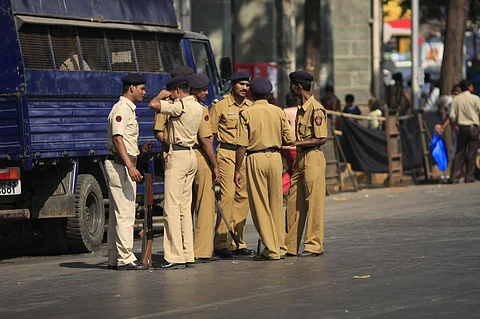

Delivering its judgement in the marriage equality petitions on Tuesday, October 17, the Supreme Court issued a list of directions to the law enforcement machinery to ensure that queer persons are not harassed or humiliated by the police. "There shall be no harassment of queer couples by summoning them to the police station or visiting their places of residence solely to interrogate them about their gender identity or sexual orientation," the court observed, referring to the practice of police personnel calling LGBTQIA+ persons to the station, often in cahoots with relatives who refuse to accept their queer identity.
The court said that the police should verify the legitimacy of complaints lodged by LGBTQIA+ persons about their families restricting their freedom of movement, and ensure that such freedom is not curtailed. The court said, "When a police complaint is filed apprehending violence from the family for the reason that the complainant is queer or is in a queer relationship, they shall on verifying the genuineness of the complaint ensure due protection."
The court also made it clear that queer persons should not be forced to return to their natal families against their wishes. It instructed the police to conduct a preliminary investigation (as per the order issued in Lalita Kumari vs Government of UP and others) before filing a First Information Report (FIR) against a queer couple or one of the parties in a queer relationship. "If the person is an adult and is in a consensual relationship with another person of the same or different gender or has left their natal home of their own volition, the police shall close the complaint after recording a statement to that effect," the court said.
Senior counsel Raju Ramachandran had argued that "the systemic nature of natal family violence against LGBTQIA+ persons, owing to their sexual or gender identity" often in collusion with the local police, require the court to frame guidelines concerning police action in cases dealing with adult and consenting queer individuals.
Advocate Vrinda Grover had submitted that the court should issue directions to state governments to instruct the police to follow the mandate of sections 41 (conditions for when police may arrest without warrant) and 41-A (serving notice prior to arrest) of the Code of Criminal Procedure when responding to complaints involving LGBTQIA+ persons who voluntarily leave natal homes.
Several instances of harassment of queer persons at the hands of the police were presented before the court — a trans woman lodged in an Australian prison with men revealed she was raped over 2,000 times; instances of police colluding with natal families to "hand over" queer couples when the couple approach them for protection. A study by the National Institute of Epidemiology showed around 60,000 transgender persons reveal that the law enforcement agencies are the largest perpetrators of violence against them.
The court, taking note of the violence and discrimination meted out to LGBTQIA+ persons, observed that this happens in different ways: "The couple may be forcibly separated from one another, their families may file complaints with the police, which lead to the registration of FIRs and the consequent harassment of one or both of them, or they may be married off to third parties without their consent." The families and the police are the primary actors in such violence, the court said, adding that it is unacceptable.
Read:
No recognition for LGBTQIA+ marriages, SC passes the buck to Parliament
From Taiwan to Columbia: A look at marriage equality around the world